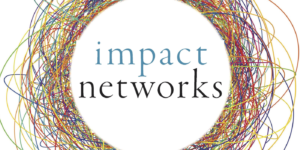“Wow! That was awesome!”
My colleague Helen Hope Kimbrough and I spend a lot of time together working on behalf of our nonprofit clients. She leads our community voice work, surfacing insights and wisdom from community stakeholders, which we in turn summarize and publish for our clients as a deliverable we call a Current Conditions Assessment. With it we create a content platform for our clients to understand our research, much of it captured qualitatively through interviews, focus groups and surveys.
Of late, our findings on behalf of clients have been fairly wide ranging. The challenges facing nonprofits are myriad in this post-pandemic timeline, with an unrelenting workforce shortage crisis, continued downstream disruption from COIVD-19, and a looming economic Recession as just a handful of the cheery topics that serve as the backdrop to planning. Our assessments are meant to be an inspirational jumping off point for planning, but sometimes (often?) our findings are downright challenging – asking our nonprofit partners to contemplate substantive change to the status quo.
Such was a most recent facilitation. Helen and I have been serving as the ‘out-of-town consultants’ to a sizable nonprofit agency in another metro. We have learned a lot about this agency’s area of focus, and in truth, what we’ve learned has scared us quite a bit. The road ahead for our largest and most influential nonprofit organizations is bumpy, to say the least.
This is not work for the faint of heart. It takes really bold, courageous leadership, which we saw on clear display as a part of this recent facilitation. The team we met with was driven to embrace change and give voice to what they had long been thinking. Nothing we were sharing was altogether new, but delivering it in a comprehensive package was truly a call to action, a call to leadership, and the task force rose to the occasion. They embraced new ways of thinking and challenged themselves to lean into challenge. They acknowledged risks but would not allow them to halt forward progress. They worked creatively. They what-if’d. They dreamed.
It was amazing. And so exhilerating.
Near the end, the CEO of the organization said: “the stakeholders you met with have encouraged us to think this way, they’ve challenged us to center the big potential impact in our planning, and it feels liberating to have that reinforced.”
It was an extraordinary comment that provides such insight into barriers faced by social impact leaders.
Taking the Pulse of a Community
We at Next Stage are really students of leadership. We have the rare opportunity to embed ourselves with nonprofit and corporate changemakers who are leading the way through their bold planning and actions.
We also know what a lonely road it can be for so many – one fraught with pitfalls and unforeseen barriers. Just accomplishing today’s tasks would be hard enough, but these leaders are being asked to think increasingly more expansively, calling out systemic inequities and finding ways to overcome them. It’s hard work, and getting some positive reinforcement can make all the difference.
Our process helps our clients benefit from the wisdom of an organization’s stakeholders including staff, board members, partners, volunteers, philanthropists, and most especially, the people the organization aims to serve. They are an organization’s most important stakeholders. Aggregating this feedback helps our clients understand what their constituencies think about them, what they hope they will accomplish, and how they want to be involved.
Lately, we’ve been wondering whether there might be a better way of working. We do all of this work for our clients, conducting countless hours of interviews and focus groups, and document it for what is often an audience of just a handful of people. Is that really equitable? Might there be a better way to work?
What if our nonprofit leaders had access to a network of both their own stakeholders and others who could provide real-time feedback? What would it look like to build and implement a powerful network like that? How would it help people make better decisions, and gain confidence that their ideas have validity?
What We’re Reading: Impact Networks
 The Next Stage team has a book club, and right now we are all-in on Impact Networks by David Ehrichman, which makes a very compelling argument for why we need “diverse combinations of people, organizations, and sectors to coordinate actions and work together even when the way forward is unclear.”
The Next Stage team has a book club, and right now we are all-in on Impact Networks by David Ehrichman, which makes a very compelling argument for why we need “diverse combinations of people, organizations, and sectors to coordinate actions and work together even when the way forward is unclear.”
Impact networks “bring people together to build relationships across boundaries; leverage the existing work, skills, and motivations of the group; and make progress amid unpredictable and ever-changing conditions.”
Inherent in the building of impact networks is vulnerability – a willingness to ‘be real’ with others, to say what isn’t being said, and to say what absolutely must be said. It is a space that welcomes leaders like our recent client CEO, who gained strength from the wisdom of community voice, who in fact felt liberated by it to get creative and think outside the box.
It is the ideal book to inspire our next steps as a company. Next Stage is on the precipice of great change as we harness the potential of our Cultivate platform to help us implement our new theory of change. Janet Ervin will be sharing more about that on our blog soon, including how we see building and managing communities of practice as a new method of supporting impact-making.
Because it is clear we need new networks now more than ever. The world of social good has arrived at a critical crossroads after several years of disruption. Never have we been more attuned to the ways government, the private sector and nonprofits are linked together in service to addressing the needs of all people in our communities. And whereas silos of services were a dominant feature of the past, that approach is no longer sufficient.
We have arrived at a moment of understanding, that success can only be accomplished collectively. The ‘social determinants of everything’ we coined earlier this year suggests that outcomes are not achieved in the vacuum of a single provider of services, but rather as a result of layered collaboration that leads to effective programming, optimized operations, effective use of resources and increased brand awareness.
Next Stage believes this new ‘era of mutuality’ requires rewiring how people and institutions work together to achieve a shared goal. It requires a new supply chain of social good – one that brings together everyone involved to share ownership, design and responsibility for outcomes.
It also requires new frameworks for working together that lean in to the principles of trust-building to achieve buy-in and collective effort.
It is work we feel uniquely called to do. We look forward to sharing more in the weeks and months ahead.
Written by Josh Jacobson, CEO, Next Stage – email him today.
